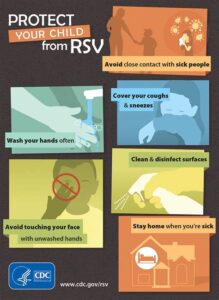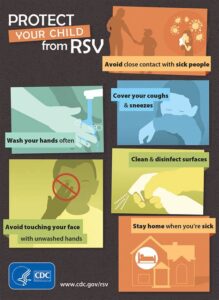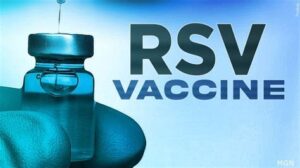Explore the RSV vaccination: learn about potential side effects, including short-term and long-term effects, and how to manage them effectively.As the world continues to combat respiratory syncytial virus (RSV), the introduction of an RSV vaccination marks a significant advancement in public health. This life-saving vaccine is designed to protect vulnerable populations, especially infants and the elderly, from the severe respiratory illness caused by RSV. However, like all medical interventions, the RSV vaccine may come with potential side effects that warrant attention. In this blog post, we will delve into the details of the RSV vaccination, exploring its potential side effects, both short-term and long-term, and offering practical advice on how to manage these effects. By understanding the benefits and risks associated with the RSV vaccine, you can make an informed decision about your health and well-being or that of your loved ones. Join us as we uncover the essential information you need to know about the RSV vaccination.
Understanding RSV vaccination
Respiratory Syncytial Virus (RSV) is a highly contagious virus that primarily affects infants and young children, causing severe respiratory infections. To combat this, health organizations have developed the RSV vaccination that aims to protect vulnerable populations. Understanding the purpose and effectiveness of the RSV vaccination is crucial for parents and caregivers.
The RSV vaccination works by stimulating the body’s immune system to produce antibodies against the virus. This helps reduce the severity of RSV infections in those who are vaccinated. Vaccination is particularly important for high-risk groups, including preterm infants, children with chronic lung conditions, and those with weakened immune systems.
As of now, the RSV vaccine has shown promise in clinical trials, leading to recommendations for its use in specific populations. However, it is essential to consult with healthcare providers to evaluate the risks and benefits based on individual health circumstances.
Potential side effects of RSV vaccine
The RSV vaccine has been developed to help protect against the respiratory syncytial virus, particularly in vulnerable populations such as infants and the elderly. Like any vaccine, it’s essential to be aware of the potential side effects that may arise following administration.
Common side effects associated with the RSV vaccine are typically mild and resolve on their own.
- Injection site reactions such as pain or swelling
- Fever or mild flu-like symptoms
- Fatigue or general malaise
In rare cases, some individuals may experience more serious reactions.
- Allergic reactions, such as difficulty breathing or hives
- Severe fatigue lasting more than a few days
- Neurological symptoms, including persistent headaches or dizziness
It’s crucial for individuals to consult healthcare providers to better understand the potential risks versus the benefits of getting vaccinated. The RSV vaccine is still a critical tool in reducing hospitalizations and severe cases of RSV infection.
Short-term side effects
The RSV vaccination is an important tool in protecting vulnerable populations, particularly infants and the elderly, from respiratory syncytial virus. While the benefits of vaccination generally outweigh the risks, it is crucial to be aware of the short-term side effects that some individuals may experience after receiving the vaccine.
- Pain at the injection site – This is one of the most frequent complaints among those vaccinated. It usually subsides within a few days.
- Swelling and redness – Some individuals may notice localized swelling and redness at the injection site, which typically resolves quickly.
- Fever – A mild fever may occur as the body builds immunity, but this usually dissipates within 24-48 hours.
- Fatigue and malaise – Some individuals report feeling unusually tired or unwell for a short duration after vaccination.
These short-term side effects are generally mild and temporary. However, it’s always advisable to consult with a healthcare professional if you have concerns or if the symptoms persist longer than expected. Monitoring for any unusual reactions post-vaccination is essential to ensure the safety and well-being of the individual vaccinated.
Long-term side effects
As awareness about respiratory syncytial virus (RSV) vaccination increases, many individuals wonder about the long-term side effects associated with this vaccine. While it’s natural to have concerns, research has shown that the benefits of vaccination often outweigh potential risks. Nevertheless, it is essential to understand some key points regarding possible long-term side effects.
1. Immune Reaction: After receiving the RSV vaccine, some individuals may experience prolonged immune responses, which could manifest as allergies or autoimmune conditions in rare instances. Continuous monitoring is crucial to study these long-term effects.
2. Respiratory Issues: Although uncommon, there have been occurrences where vaccinated individuals experienced respiratory issues months after vaccination. It is important for healthcare providers to document these cases to determine any significant patterns or causative links related to the RSV vaccine.
3. Ongoing Research: Ongoing studies continue to evaluate the long-term side effects of RSV vaccination. Regulatory bodies are committed to ensuring vaccine safety, and any findings that suggest significant long-term issues will prompt further investigation and transparency.
In summary, understanding the long-term side effects of the RSV vaccination is critical as public health officials strive to protect vulnerable populations, especially infants and the elderly. With continued research and data collection, a clearer picture of the long-term implications of the RSV vaccine will continue to evolve.
Managing RSV vaccine side effects
Managing the side effects of the RSV vaccination is an important aspect of ensuring a smooth vaccination experience. Like any vaccine, the RSV vaccine may come with certain side effects that can cause concern among individuals receiving it. However, most of these side effects are mild and temporary.
- Hydration: Drink plenty of fluids before and after vaccination to help alleviate symptoms like fever and headaches.
- Rest: Allow your body to recover by getting adequate rest, especially if you feel fatigued after the vaccine.
- Pain relief: Over-the-counter medications such as ibuprofen or acetaminophen can help manage pain and fever.
- Cold compresses: Applying a cold compress to the injection site can reduce swelling and discomfort.
It’s also essential to monitor side effects for any unusual symptoms that may require medical attention. Always consult with your healthcare provider if you have concerns about the side effects you are experiencing. Remember, managing these side effects effectively can lead to a more positive vaccination
Frequently Asked Questions
What is RSV and why is the vaccination important?
RSV, or Respiratory Syncytial Virus, is a common virus that causes respiratory infections, especially in infants and young children. The vaccination is important as it helps protect vulnerable populations from severe illness associated with RSV.
What are some common side effects of the RSV vaccination?
Common side effects of the RSV vaccination can include mild symptoms such as soreness at the injection site, fever, irritability, and fatigue. These side effects typically resolve on their own.
Are there any serious side effects associated with the RSV vaccination?
While serious side effects are rare, they can occur. These may include allergic reactions such as difficulty breathing, swelling of the face or throat, and rapid heartbeat. Individuals experiencing these symptoms should seek medical attention immediately.
Who should receive the RSV vaccination?
The RSV vaccination is particularly recommended for high-risk groups, including premature infants, children with chronic lung disease, and those with weakened immune systems.
How effective is the RSV vaccination in preventing the virus?
Clinical studies have shown that the RSV vaccination is effective in significantly reducing the incidence of RSV infections in vaccinated populations, especially among high-risk individuals.
Can adults receive the RSV vaccination?
Currently, RSV vaccinations are primarily targeted towards infants and young children. However, ongoing research may lead to recommendations for vaccination in older adults, particularly those with underlying health conditions.
What should individuals do if they experience side effects after receiving the RSV vaccination?
Individuals should monitor their symptoms after receiving the RSV vaccination. For mild side effects, rest and over-the-counter medication may help. If any severe or concerning symptoms arise, it is important to contact a healthcare professional immediately.





